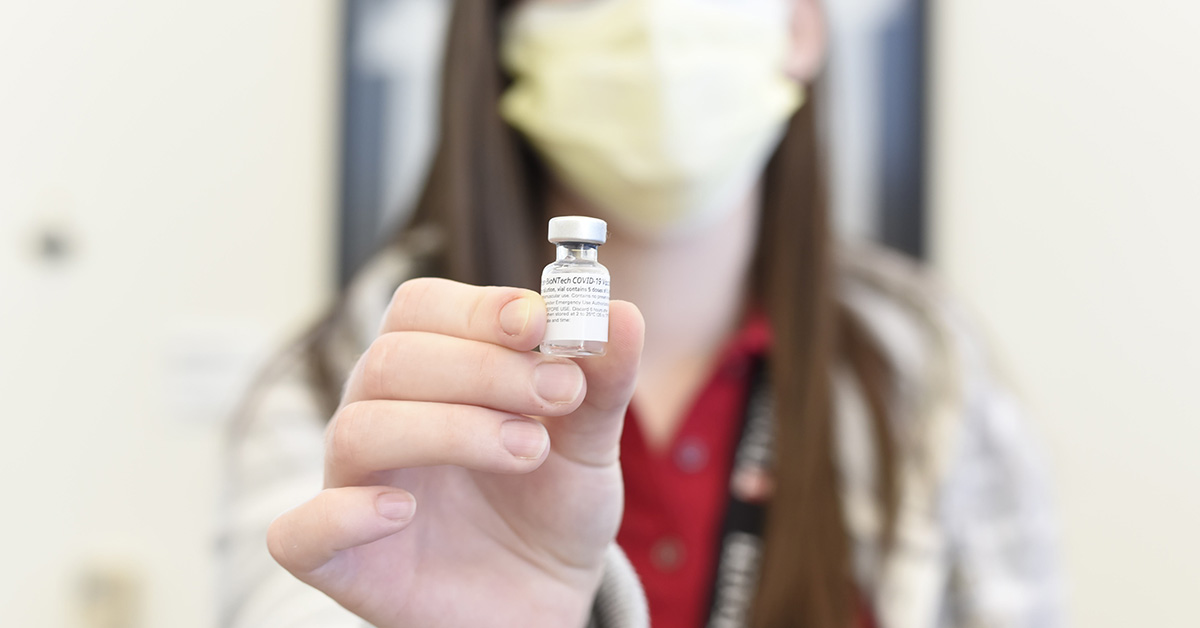
Is the COVID Vaccine Less Effective in Cancer Patients?
-
Over the course of the last 4 months, most of the population has jumped for joy at the development of the COVID-19 vaccine. Getting vaccinated is exciting, and it is one of the major steps that we can all take toward ending this pandemic.
We know that the COVID-19 vaccinations authorized for use in the United States by the Food and Drug Administration (FDA) are both safe and highly effective. While the vaccines were not initially studied in cancer patients, Fox Chase Cancer Center, along with every major medical professional group, recommends vaccination for cancer patients and survivors as soon as possible.
Recently, there have been more studies performed on the effectiveness of the vaccine when given to patients with particular types of cancer. As these studies are being shared with the public, it’s important to focus on what we know is true and recognize that there is still information yet to be discovered.
How Does the COVID-19 Vaccine Work?
In order to understand the effectiveness of the vaccine in different individuals, it’s helpful to know how the vaccine works. The COVID-19 vaccines give our body a set of instructions to make a protein (the “spike protein”) specific to the virus (SARS-COV-2) that we are trying to protect against. The body’s immune cells recognize that the protein does not belong and fight it off by creating antibodies.
Vaccinating Patients with Hematologic Malignancies
The cells of our immune system originate in the bone marrow and then circulate in the blood and our lymphatic system so they can protect the body.
Many cancers of the blood, like leukemia, lymphoma, and multiple myeloma, affect the body’s ability to engage the immune system the same as in a healthy individual. “For these patients, it is expected that there would be a lower degree of response in patients with a hematologic malignancy or blood cancer,” explained Martin J. Edelman, MD, Chair of the Department of Hematology/Oncology at Fox Chase Cancer Center. “Even though a reduced immune response is typical of all vaccines in patients with hematologic malignancies, there is still some protection, which is better than none at all.”
Vaccine Protection in Patients with Any Form of Cancer
Patients who are receiving active treatment for any cancer may also have a slightly compromised immune system. Common treatments for cancer like chemotherapy and radiation often diminish the body’s immune response. At this time, we are unsure whether this will decrease the effectiveness of the COVID-19 vaccines in cancer patients, but it would not be surprising if it did to some extent.
“Regardless of whether you are being actively treated for cancer or have been treated for cancer in the past, we recommend that you get the COVID-19 vaccination as soon as possible,” Edelman said. “The sooner you are vaccinated, the better.”
While the COVID-19 vaccination is new, the act of cancer patients receiving vaccines during treatment is not. And the same theory applies: Some protection is better than no protection. So, while it is expected that there may be a lower degree of response in some patients with cancer, it is important to still take this step as soon as possible.
“Even if the COVID-19 vaccine is less effective in patients with cancer, it still offers protection in terms of both preventing infection and severe disease caused by this coronavirus,” Edelman said.
Continuing to Practice Precautions
While the approved COVID-19 vaccines offer substantial protection in the normal population, maintaining precautions against COVID-19 is essential. Keep masking; keep practicing social distancing. Especially in people with compromised immune systems, we are not at a point where we can let our guard down.
